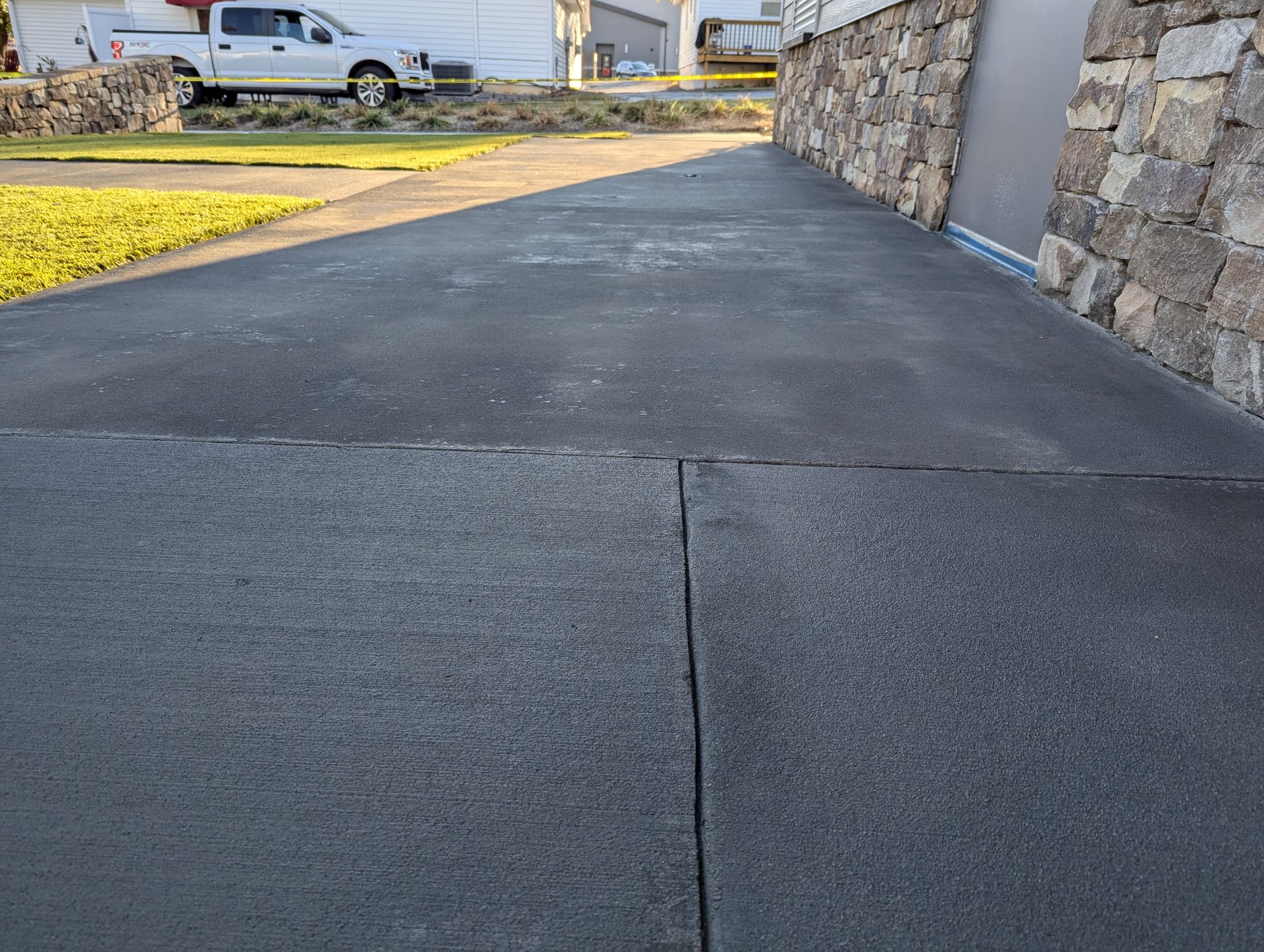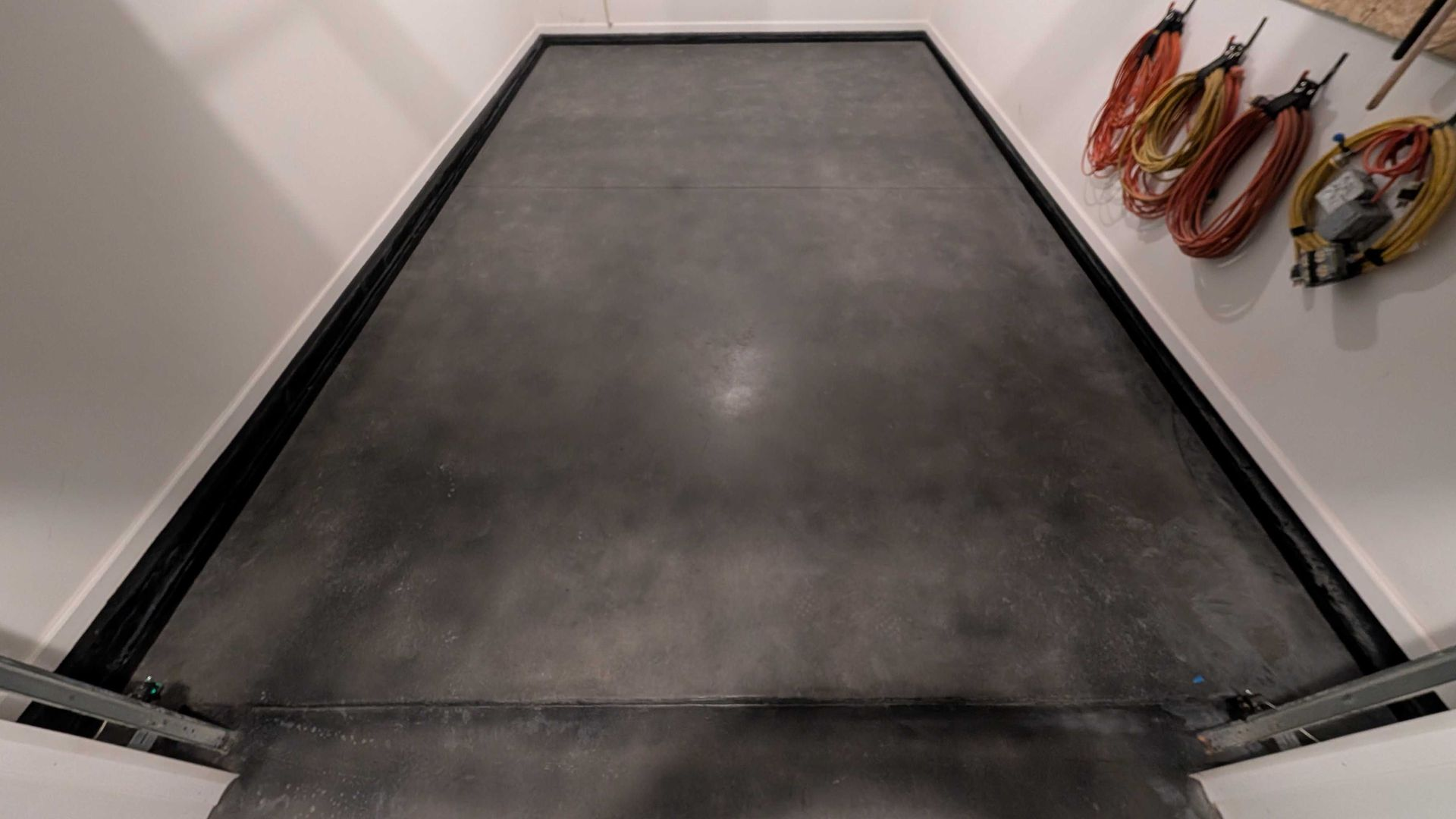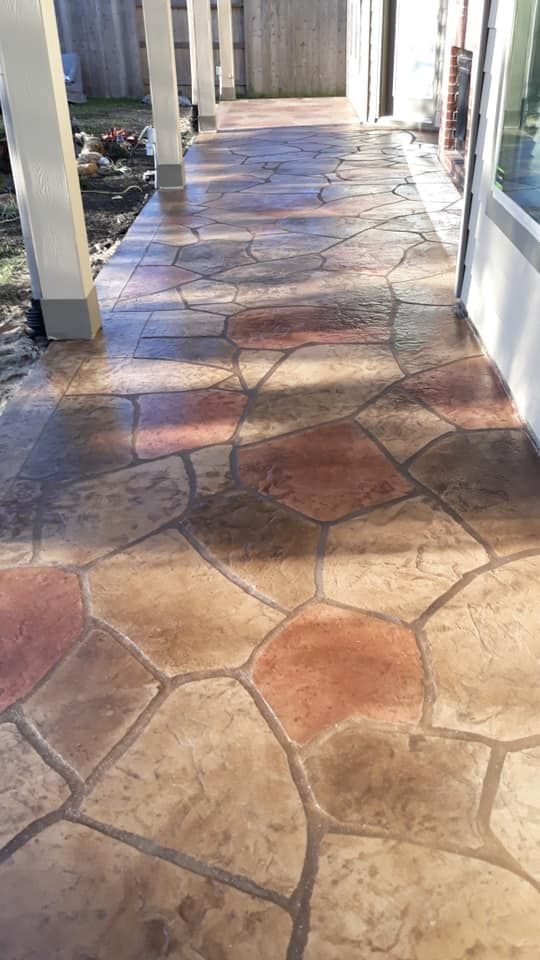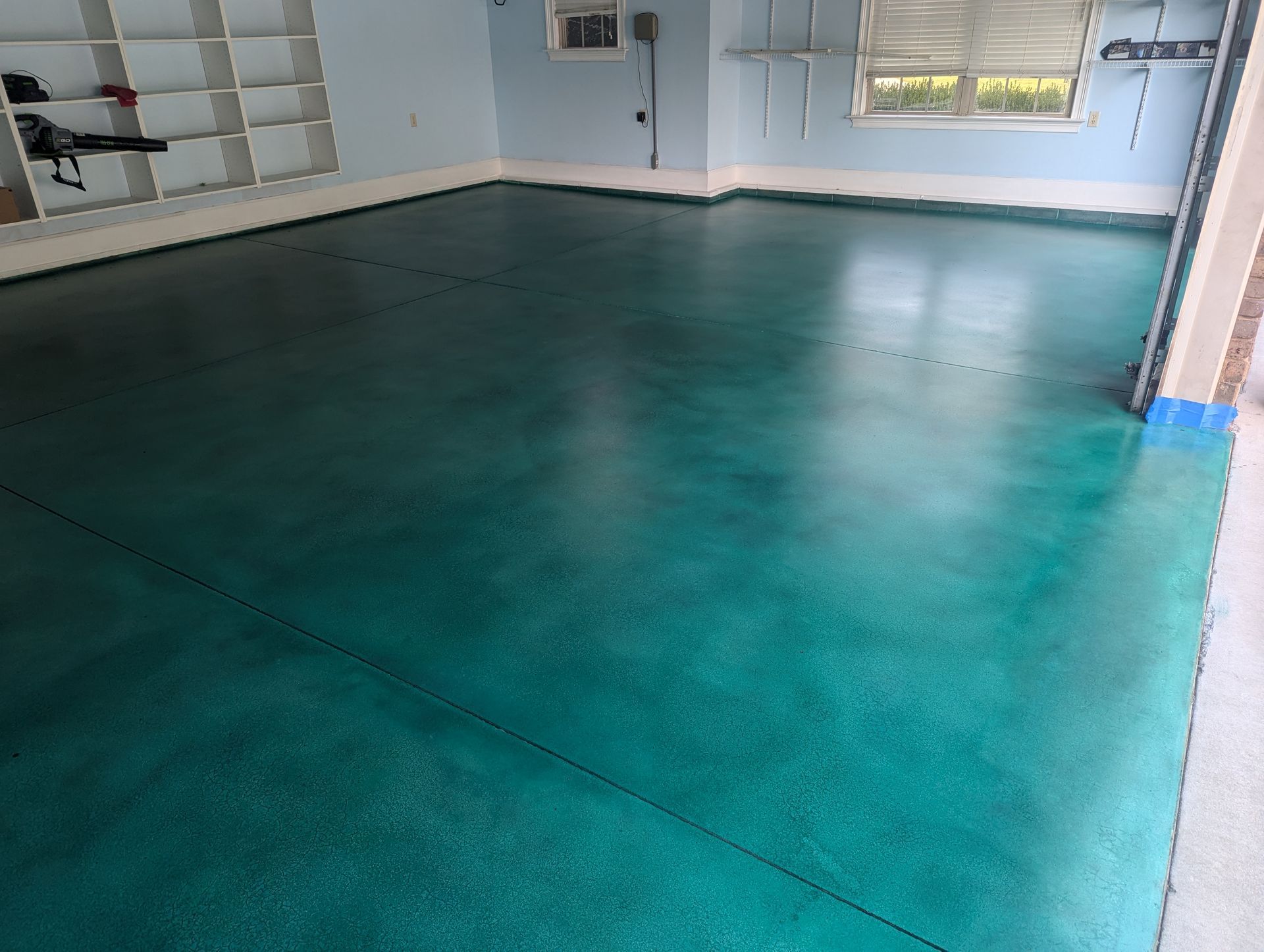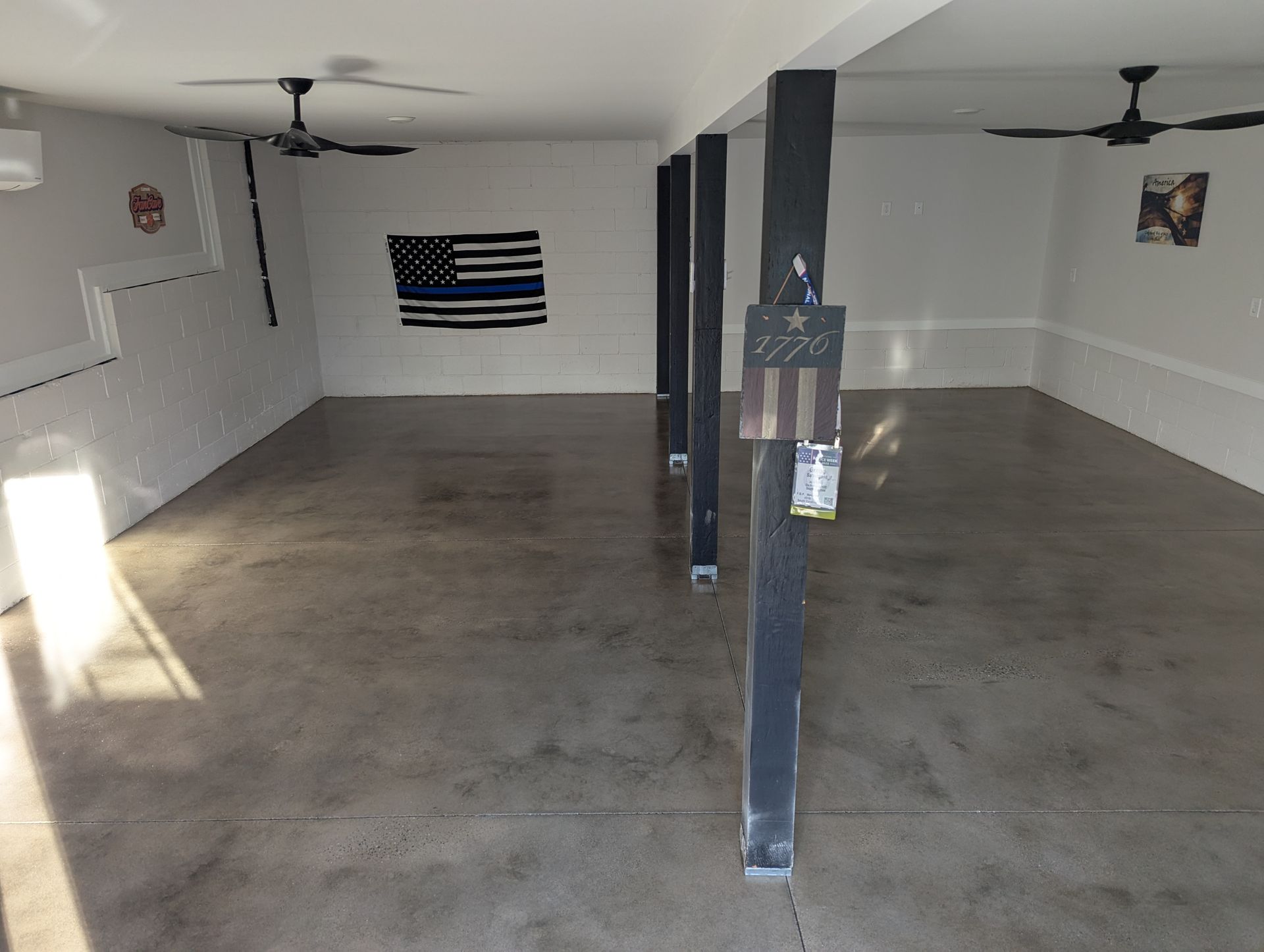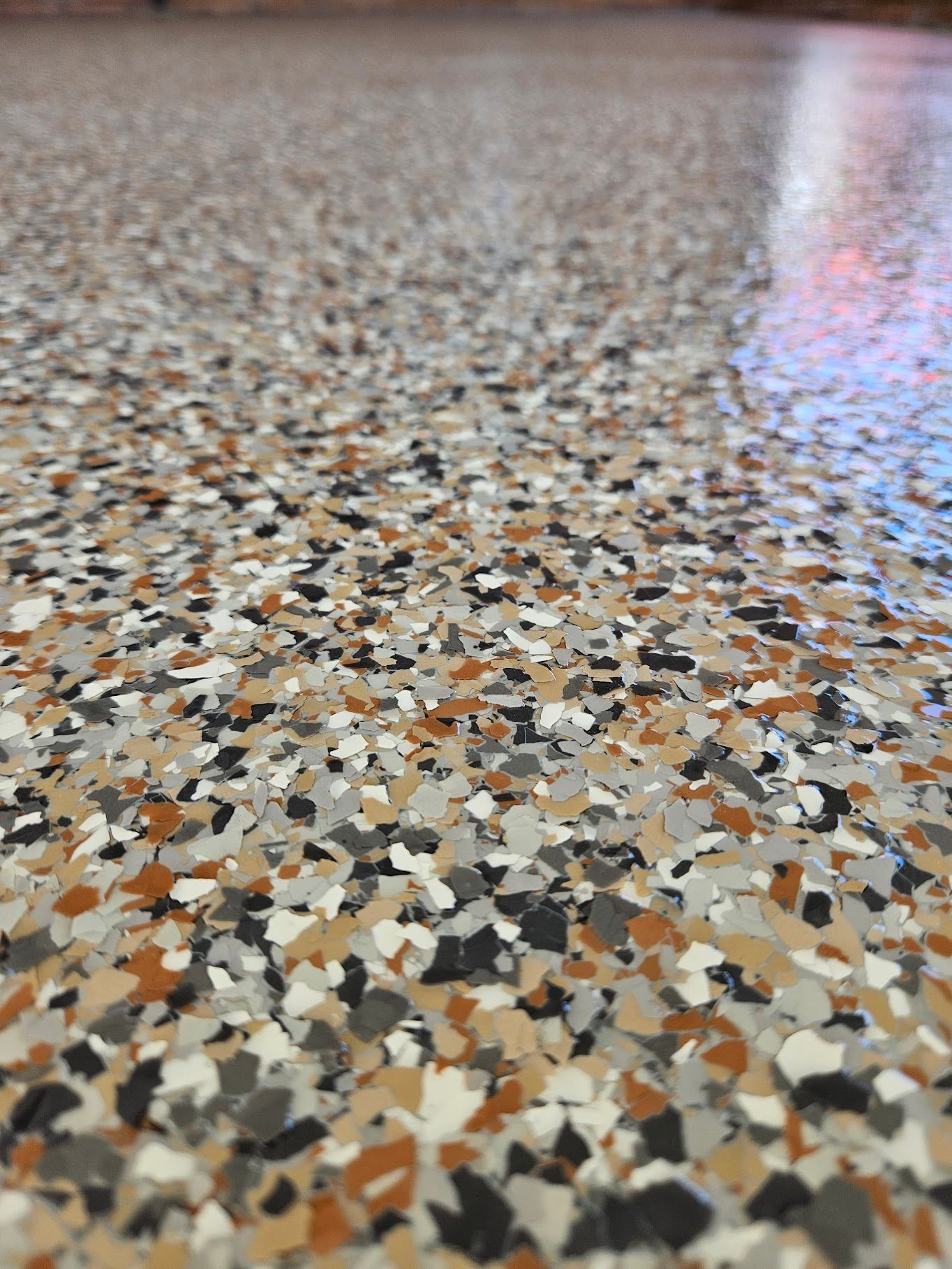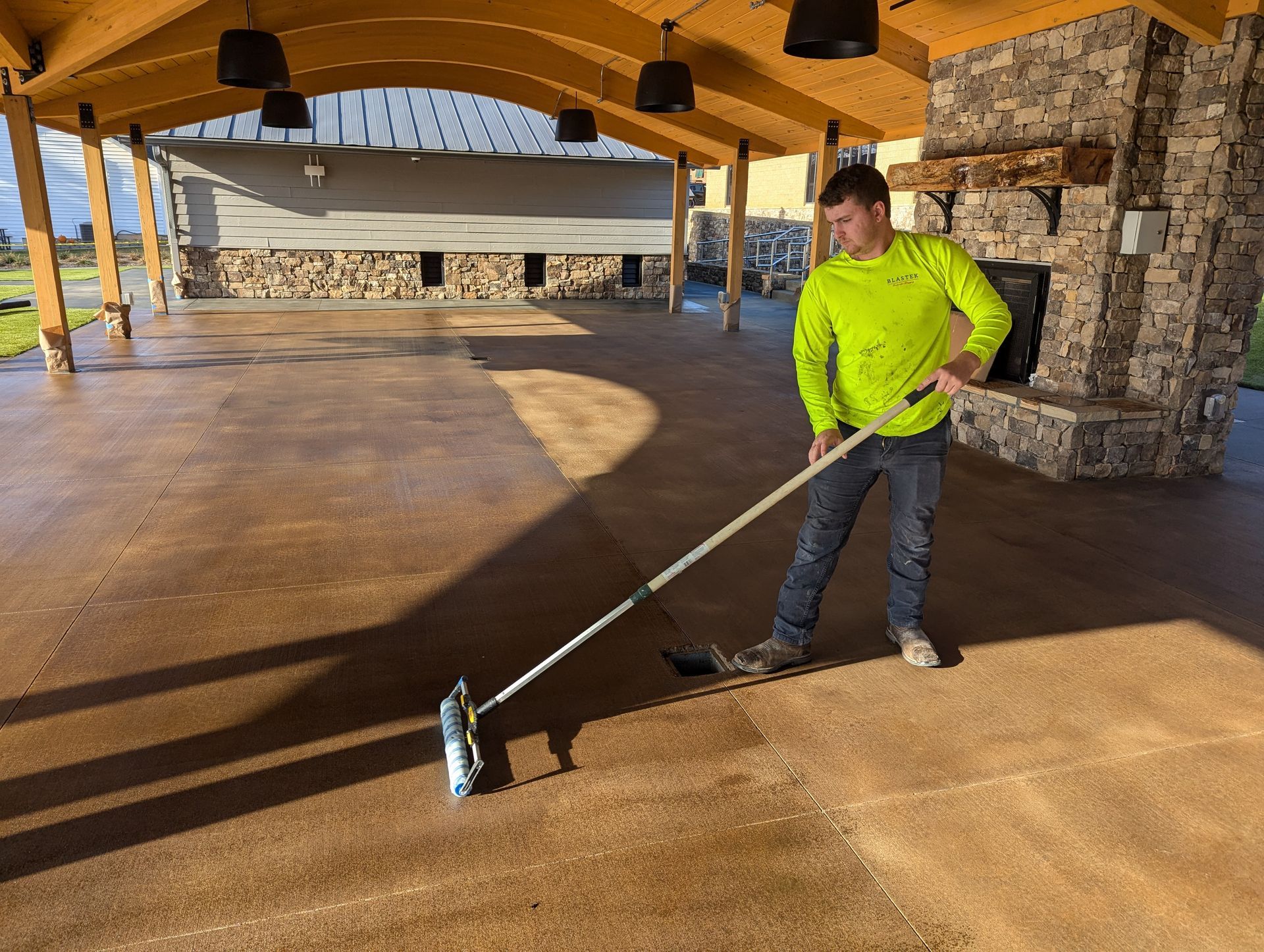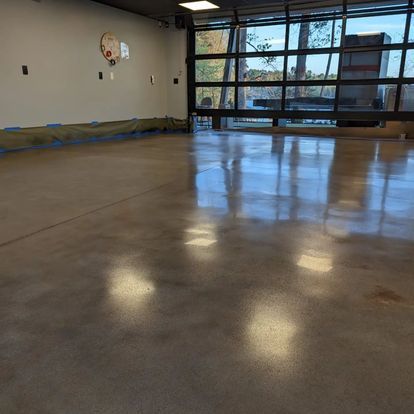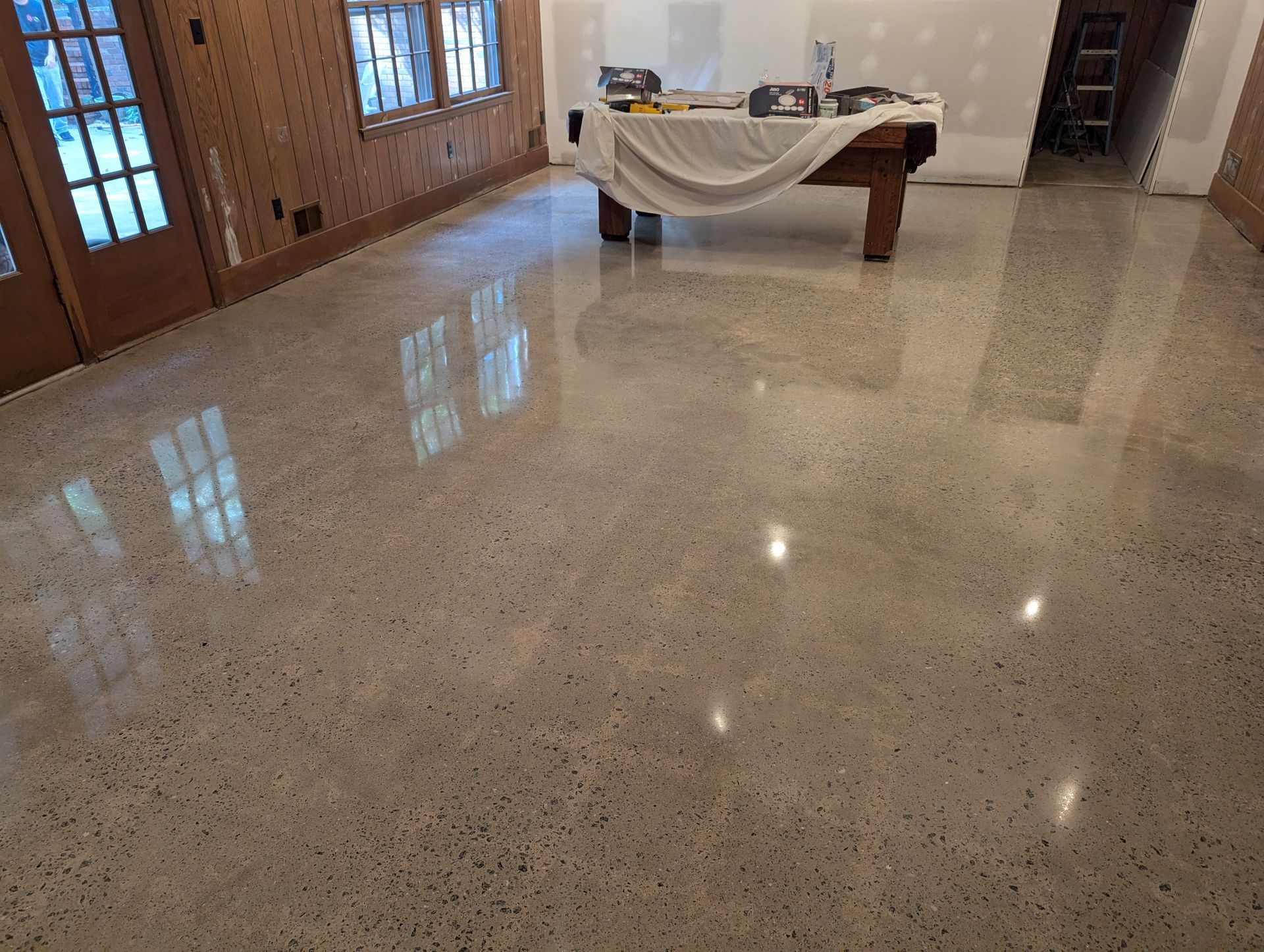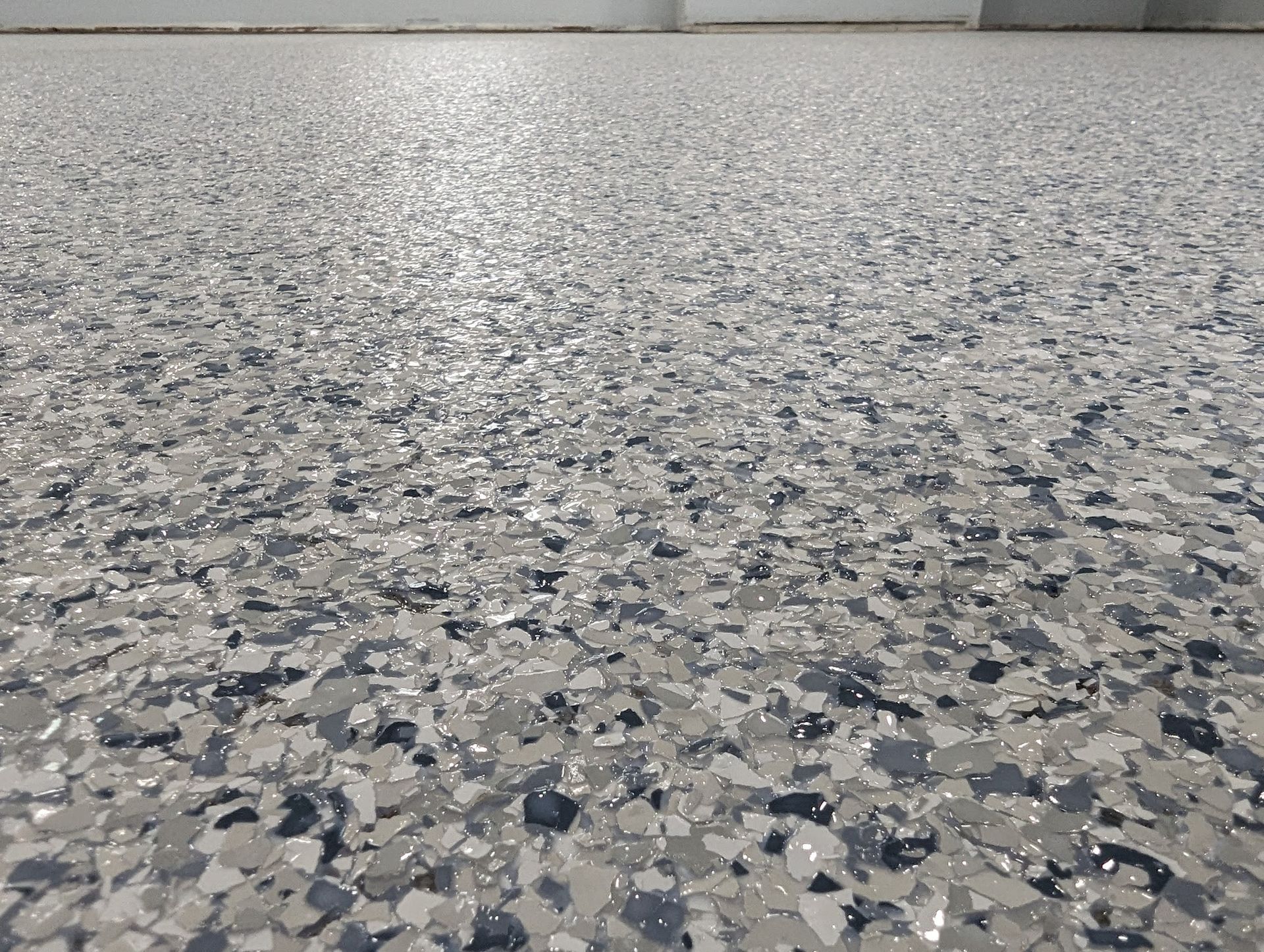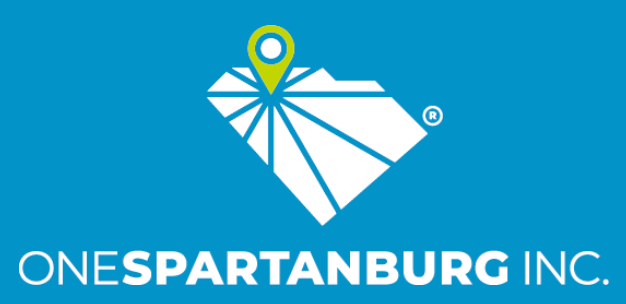The Ultimate Spartanburg Guide to Polished Concrete Floors: Pros, Cons, and Real Costs
Polished concrete floors are gaining traction in Spartanburg’s commercial sector—for good reason. Property managers, retail owners, and facility directors are realizing that flooring isn't just about looks; it's about performance, maintenance, and long-term cost savings.
This guide breaks down the essential pros, cons, and real costs of polished concrete floors, with a focus on what commercial property owners in Spartanburg need to know before making the switch.
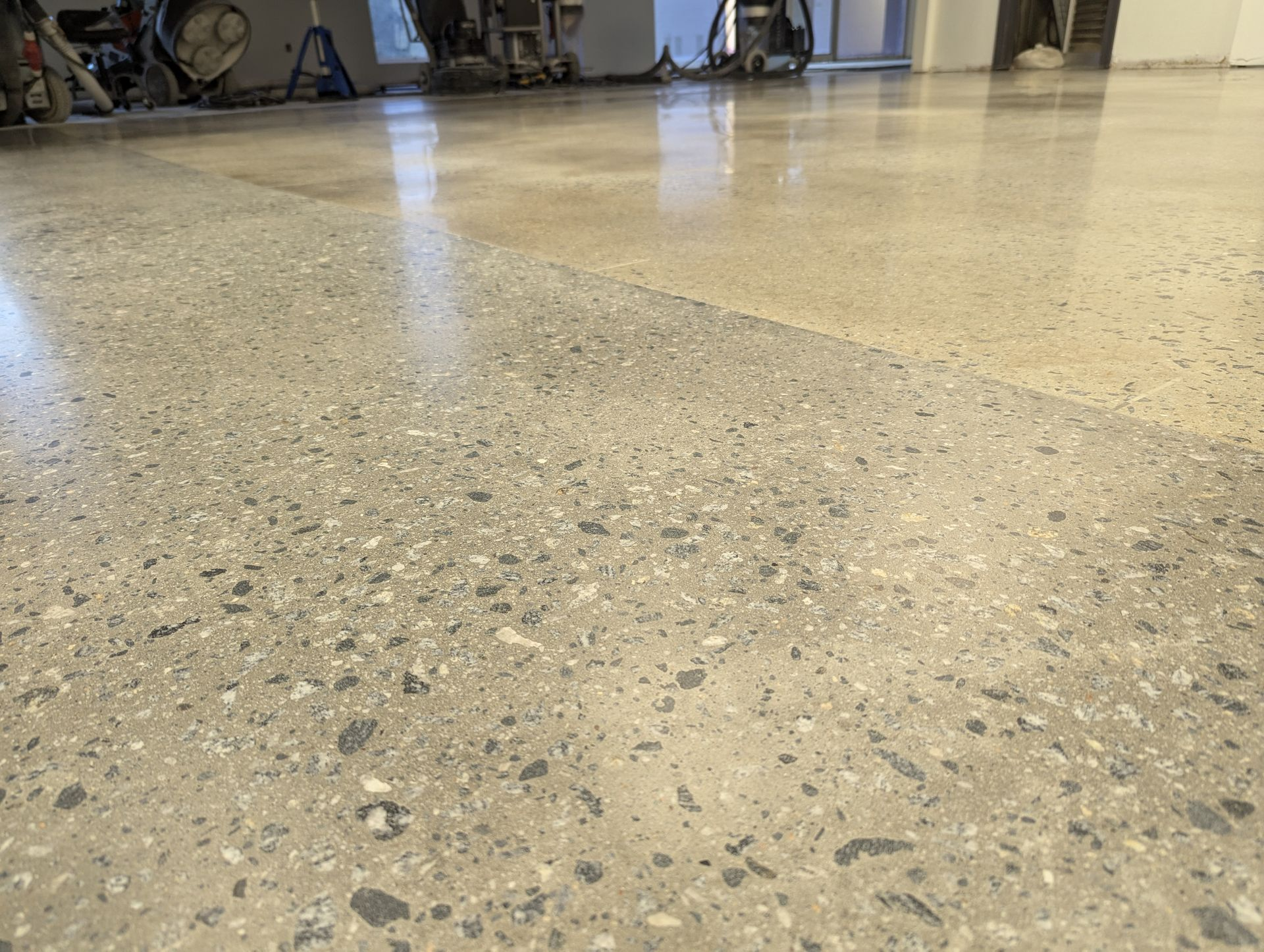
What Are Polished Concrete Floors?
Polished concrete is created by mechanically grinding, honing, and sealing a concrete surface to achieve a smooth, reflective finish. It’s commonly used in commercial spaces like:
- Retail stores
- Restaurants and cafés
- Showrooms
- Warehouses
- Office buildings
Unlike epoxy or vinyl coatings, polished concrete becomes part of the slab itself—eliminating peeling or delamination risks and reducing long-term maintenance.
Pros of Polished Concrete Floors for Commercial Properties
1. Durability Built for High Traffic
Polished concrete stands up to forklifts, shopping carts, foot traffic, and rolling furniture. It doesn’t chip or scratch easily, which makes it a practical solution for Spartanburg’s busy commercial environments.
2. Low Maintenance
These floors require no waxing, stripping, or re-coating. Regular dust mopping and occasional wet cleaning keep the surface looking professional.
3. Cost-Effective Over Time
While the initial investment may be higher than vinyl or carpet, the lifecycle cost is much lower. You won’t need replacements every 5–10 years.
4. Energy Efficient
Polished concrete reflects natural and artificial light. This increases indoor brightness and can reduce lighting costs in large commercial areas.
5. Improved Indoor Air Quality
Polished concrete doesn't trap dust, allergens, or mold like porous flooring materials. This is especially important for Spartanburg businesses subject to health regulations.
Cons of Polished Concrete Floors (and How to Address Them)
1. Can Be Slippery When Wet
While dry polished concrete has good traction, wet conditions require additional treatment. Anti-slip coatings or mats may be needed in areas prone to spills.
2. Hard Surface
It’s a firm surface, which may not be ideal for long-standing tasks. In workplaces where employees stand for hours, consider using anti-fatigue mats.
3. Not Ideal for Moisture-Prone Slabs
If the subfloor has excessive moisture vapor transmission, polishing may not be recommended unless vapor barriers are installed first.
4. Cracks and Imperfections Are Visible
Polishing enhances the natural character of concrete—including any flaws. For a uniform appearance, cracks should be repaired before polishing begins.
Real Costs of Polished Concrete Floors in Spartanburg
Pricing depends on the slab condition, size of the space, finish level, and customizations. Here’s a breakdown of average costs per square foot:
| Finish Level | Description | Average Cost (Spartanburg) |
|---|---|---|
| Basic Matte Finish | Grind + seal only | $3.00 – $4.00 |
| Mid-Gloss Finish | Multiple passes, densifier included | $4.00 – $6.00 |
| High-Gloss Finish | Full polish with stain guard | $6.00 – $8.00 |
| Decorative Options | Dye, scoring, logos | +$1.00 – $3.00 add-on |
Note: These are estimated rates for commercial projects in Spartanburg. Large spaces may qualify for volume pricing, while slabs in poor condition may require extra prep.
What to Ask Before Hiring a Polished Concrete Contractor
To get the most out of your investment, ask these key questions before signing a contract:
- Is moisture testing included in the prep?
- What densifier or sealant will be used?
- How many grind levels will be performed?
- Will crack repairs be included in the quote?
- Is the team experienced with commercial-scale jobs in Spartanburg?
Hiring a local contractor who understands the region’s climate and commercial zoning standards is key. Polished concrete looks great, but proper installation is what ensures performance.
Best Applications for Polished Concrete in Spartanburg Businesses
- Retail Stores: Enhances brand perception and withstands daily foot traffic.
- Warehouses: Supports heavy equipment with minimal dust.
- Office Lobbies: Professional finish that’s easy to maintain.
- Restaurants & Cafés: Hygienic, stylish, and durable under spills and traffic.
Medical Facilities: Seamless surface that resists bacteria and meets sanitation codes.
Conclusion: A Long-Term Flooring Solution Backed by Performance
Polished concrete is more than just a trend—it’s a smart investment for Spartanburg’s commercial properties. It delivers durability, low upkeep, energy efficiency, and a modern aesthetic that appeals to both clients and staff.
If you’re
ready to upgrade your business space with polished concrete, contact
Blastek Concrete Designs. Our team specializes in commercial flooring solutions tailored to Spartanburg’s climate and commercial demands.
FAQ
How long does polished concrete last in commercial buildings?
With proper maintenance, polished concrete floors can last over 20 years, making them ideal for commercial spaces.
Can polished concrete be customized for branding?
Yes. You can add dyes, score lines, or even embedded logos to match your brand identity.
Do polished concrete floors meet safety standards?
Yes, but commercial areas may need anti-slip additives or mats in wet zones to meet OSHA or local code.
How long does installation take for a 5,000 sq ft space?
Most jobs of this size take 4–6 days, depending on the slab’s condition and desired finish.
Is polishing better than epoxy for commercial use?
Polished concrete is longer-lasting and lower maintenance than epoxy for high-traffic commercial settings.

